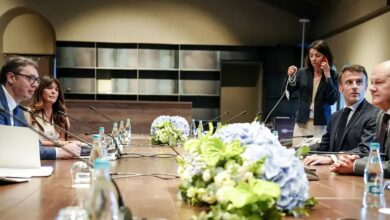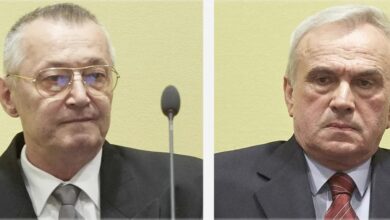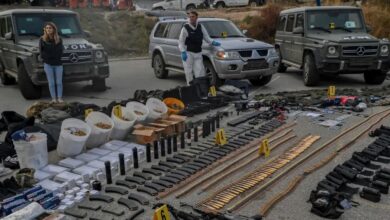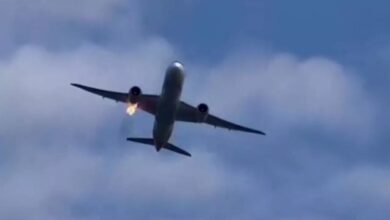Serbia Kosovo Tension: Why the Western Balkans is tense
Why the Western Balkans are rumbling... For a long time it looked as if there could be a rapprochement between Serbia and Kosovo.
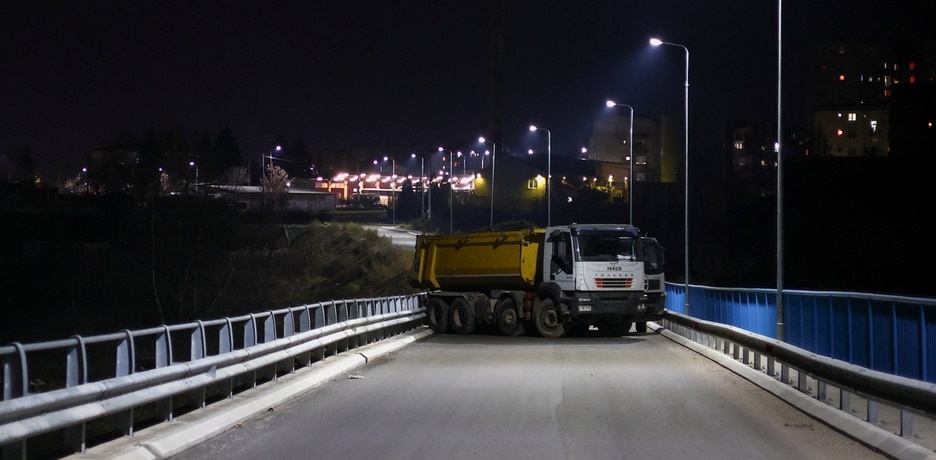
But now the fronts have hardened – the Serbian army has been put on combat readiness. How could it possibly come this far? / Serbia Kosovo Tension
The words of Serbian Defense Minister Milos Vucevic sounded menacing, as if the conflict between Serbia and Kosovo were about to culminate in a war: “5,000 special forces of the Serbian army will be put on combat readiness. All will be operational by the end of 2023. They will be be our strongest fist and smash to pieces the bad targets of those who don’t like our country,” Vucevic said during a visit by Serbian troops to the border area with Kosovo.
The Serbian President, Aleksandar Vucic, has so far avoided the word “attack”. Instead, he speaks of a defensive measure: “We will do everything we can to maintain peace and stability. But after the Albanians have armed themselves and are taking action against our people, we will do everything we can to protect the Serbs in northern Kosovo,” Vucic said in a video clip on his Instagram profile on Monday.
Serbian President is outraged
The Serbian President now uses almost every incident to address his people indignantly and to present himself as the guarantor of protection for the Kosovo Serbs. Vucic appears on television with people he believes have been bullied by the Albanian-dominated central government in Pristina.
Vucic appeared with the head of the Serbian Orthodox Church, Patriarch Porfirije, who is also Archbishop of Pec in western Kosovo. The patriarch wanted to visit his official residence in Pec this week and was not allowed into the country by the Kosovan border guards.
Vucic also performed with a Kosovo Serb family of winemakers whose wine was confiscated and destroyed. Because the family had tax debts, the Kosovo police took their wine from them, poured all the grape varieties together and made the wine worthless.
Barricades made of trucks placed sideways
In the last few days there have been a number of other, far more dicey stories. In the predominantly Serb populated north of Kosovo, many citizens are in rebellion. Earlier this week they erected two barricades in the divided city of Mitrovica with trucks parked across them. They blocked a bridge on the outskirts of the city. For the past two and a half weeks there have also been barricades along all the important country roads in the north. There, firecrackers and stones were thrown at journalists.
Kosovo police have closed both border crossings between Serbia and northern Kosovo. On Tuesday, around 20 Serbs with trucks and tractors blocked the important Merdare border crossing near Pristina, which many Albanians and Serbs use to spend the holidays in other European countries.
At least two shootings
Since the barricades were erected, there have also been at least two shootings. At one, a KFOR patrol was nearby, at the second, masked men exchanged fire with Albanian police. There are no longer any Serbian police officers in northern Kosovo because all Serbian officers have resigned in protest.
An Albanian police officer sustained a shoulder wound in a shootout. A Serbian ex-policeman was arrested as the alleged ringleader. Another Serb was also arrested for other attacks on police officers, as well as another Serbian ex-policeman for alleged war crimes in the Kosovo war.
The arrests, in turn, sparked anger in Belgrade and prompted the Serbian President to issue a government statement complaining that the Kosovar government was being impudent and breaking the law. Kosovo’s Prime Minister, the Albanian Albin Kurti, rejected the accusation that the arrests were arbitrary and aimed specifically at the Serb ethnic group. He accused Vucic of using “criminal gangs” in northern Kosovo and inciting the Serb population to destabilize the situation.
It all started with a license plate dispute
But how could the situation escalate so quickly in such a short time? The starting point was a dispute over car license plates. The Kosovar government wanted to force the Serbs in northern Kosovo to exchange their Serb number plates for Kosovar ones. The goal was to gain full control of traffic on state territory and collect vehicle taxes. After this dispute was negotiated in Brussels in November and settled in favor of the Serbs, the second major bone of contention emerged.
The Serbs are now demanding that the Serbian municipal administration, which was negotiated in Brussels ten years ago, be set up in Kosovo. So far there has been no coordination among the loose communities. The current government in Pristina rejects the project, citing constitutional concerns as the reason. Behind this is the fear that the Serbs could gain too much power, block politics in the country and that a kind of Republika Srpska could emerge in Kosovo, as in Bosnia-Herzegovina. In Kosovo there are four Serb communities in the north and six Serb enclaves in the predominantly Albanian south that are not in the insurgency.
Kosovo wants to become a candidate for EU membership
In November there was still hope for Kosovo. After the number plate dispute was settled, there was talk of further negotiations with prospects of success. Kosovo would like to become a candidate for EU membership and Serbia, which has been a candidate for ten years, wants to keep the EU option open, despite its closeness to Russia.
The EU submitted the so-called “Franco-German proposal” to the Serbian and Kosovan governments to normalize relations. The proposal provides that Serbia will not be forced to recognize Kosovo as independent. However, Serbia must accept that Kosovo exercises autonomous power on its territory. But these attempts at rapprochement now seem to be a long way off due to the many incidents of recent weeks.

